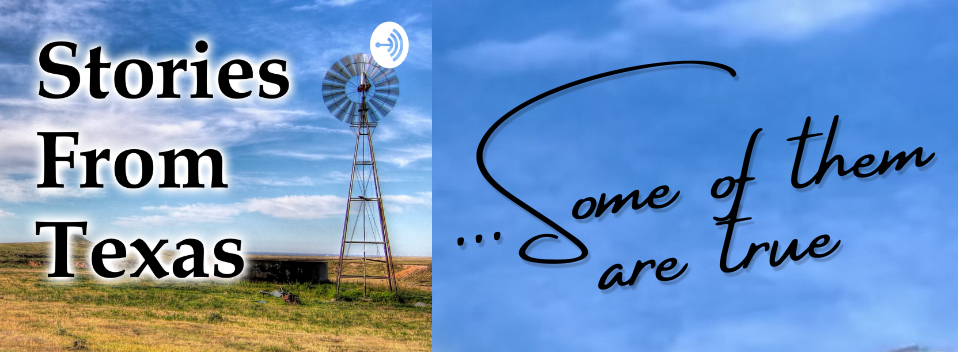
Stories From Texas
Loading...
Document Type
Article
Publication Date
9-8-2021
Abstract
I showed a friend of mine a picture of me sitting at the edge of a thin ridge jutting out, about 300 feet above the Pecos River. He said, “I can’t look at that, it gives me the willies.”
Oh, yes, the willies, goosebumps and shiverings triggered by our phobias. As an amateur linguist, I’m always wondering where certain expressions come from. How did the words end up as common words in English? The willies, for instance, has a fascinating derivation. Frontiersmen, you see, used to wear wool undergarments, but as they were made of wool, they often got itchy causing “the woolies,” which evolved into “the willies,” and was then used to name all circumstances of discomfort that make your flesh crawl.
I love words that have interesting origins like that. There are many words we use daily that we might believe are native to English or even Texas, but are foreign. Here’s a few that fit the bill.
Honcho. Seems like a word of that would have come from the old West. “Who’s the head honcho around here?” It’s actually Japanese. It means, as you know, “boss” or “group leader.” It was brought back by U.S. soldiers who served in Japan after WWII.
Savvy is another word that migrated here. Again, it sounds like, and was, a word used in Western movies. “That boy’s got a lot of savvy about horses.” It comes from the Portuguese verb saber. Sabe – to know. Within a trade language it became sabi, with an ‘i” and in that pidgin language, traveled to the Caribbean where sabi became savvy.
Ever been stuck in the boonies? I hear that word often. A text comes in – “I’m stuck out here in the boonies – truck won’t start. Can you come get me?” The boonies is derived from bundók, a Tagalog expression U.S. soldiers brought back from the Philippine-American War in 1899. It means: in the remote areas of the interior, in the mountains. Similarly, there’s a common expression in Spanish I often hear in Texas: “en el monte,” meaning remote areas that are unpopulated and perhaps backward.
Metroplex is both Greek and Latin. The metro is derived from the Greek Metropolis (mother city), which gives birth to smaller towns and cities. Plex is Latin to weave. And so it means that the mother cities of Fort Worth and Dallas have weaved an enormous network of interconnected cities and towns and suburbs.
A few more for you. Ketchup is, one would think, American as apple pie. But it is Chinese. Lemon is Arabic. Wanderlust is German. And we get a lot of good slang terms from Yiddish. Your IT specialist often explains the trouble you were having with your computer as “a glitch.” That’s Yiddish. So is schmooze. And so it klutz.
You might think that the word chocolate, a virtually vital condiment here in America, would have its roots in English, or in a European language, but no, it comes from the native American language found in Mexico, Nahuatl. It’s xocolatl in its original form. It migrated to Spanish as chocolate. And we Anglicize it as chocolate.
Last, we come to words so common, especially in Texas, that we forget they’re Spanish. Rodeo, patio, corral and desperado, which evolved from desesperado. Actually, if not for Spanish words that have become staples in English, we couldn’t eat our favorite meals: avocado, guacamole, chili, chili pepper, and tomato. But sometimes we don’t bother to use a translation or even use the cognate pronunciation. We just say, “Otra cerveza por favor, amigo.”
Hungry? Let’s go to lunch.
Format
.MP3, 6.50 MB, 192 kbps
Length
00:04:44
Language
English
Notes
https://kutkutx.studio/stories-from-texas/words-that-migrated
Recommended Citation
W. F. Strong. "Words That Migrated" *Stories From Texas*. Texas Standard. Podcast audio. September 8, 2021.
https://kutkutx.studio/stories-from-texas/words-that-migrated
https://scholarworks.utrgv.edu/storiesfromtexas/119

Comments
© 2021 William F. Strong. Uploaded with permission of copyright holder.